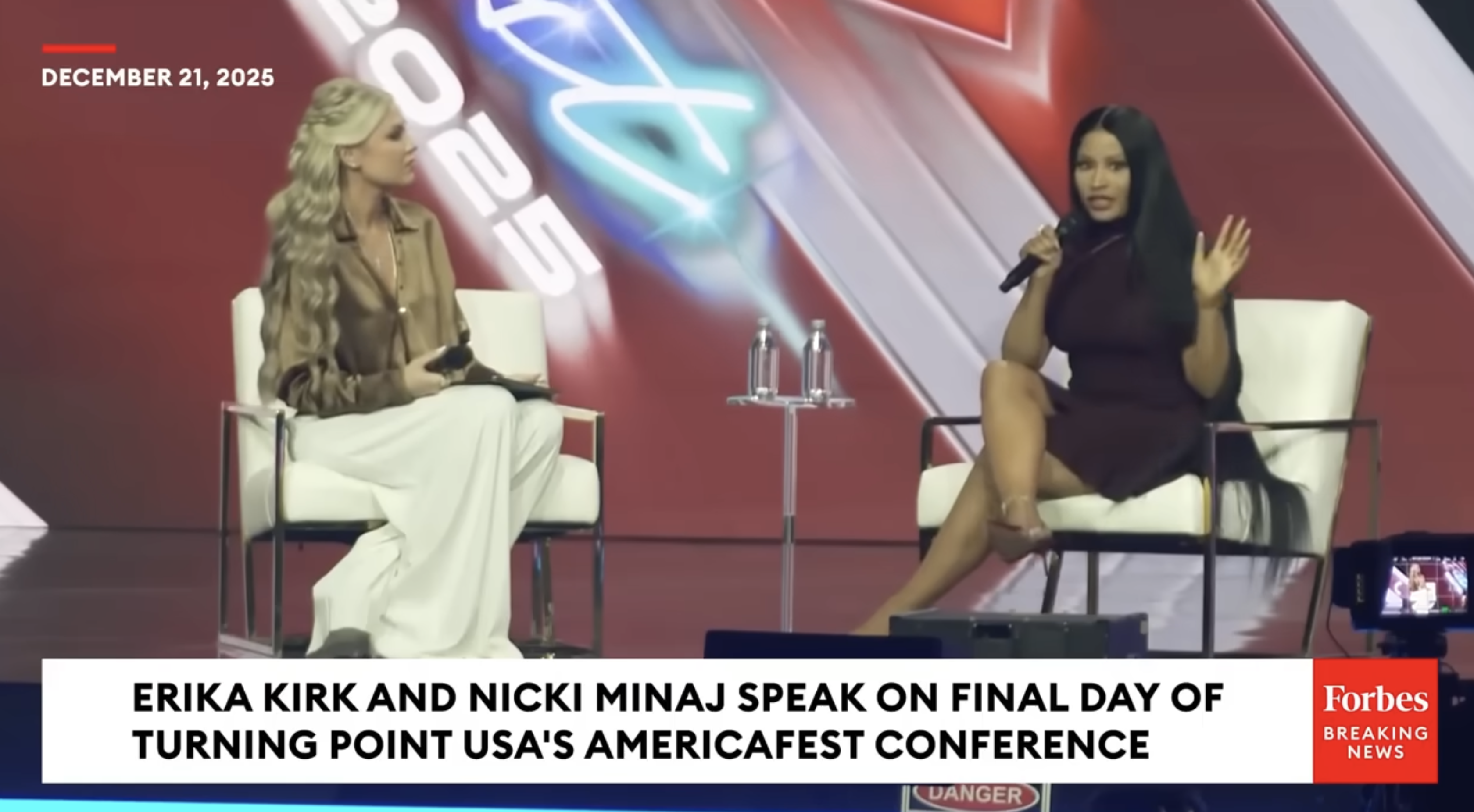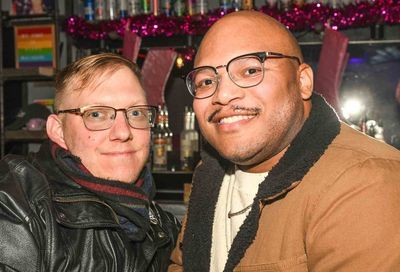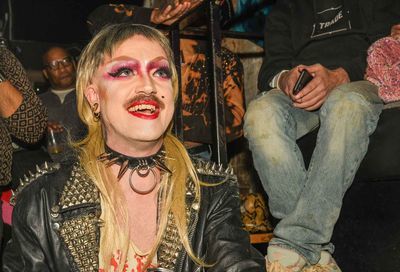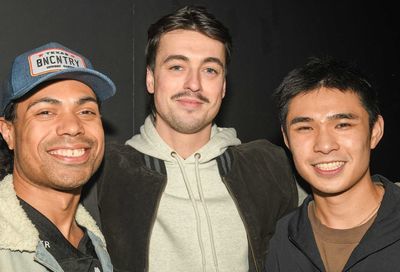Mayoral Outreach
Mayor Anthony Williams discusses the first-ever LGBT Summit
In March, everyone in the city knew that the mayor’s cabinet included an Office of Lesbian, Gay, Bisexual and Transgender Affairs.
But what would normally be an accomplishment was instead a sudden and wrenching turn as news broke that the acting director of the LGBT office, Wanda Alston, had been murdered in her home. Among the many projects Alston had been working on was the first-ever Mayor’s LGBT Citizen Summit. She had sent out a letter to the community about the event just days before her death.
 |
While mourning the loss of Alston, Mayor Anthony A. Williams and his administration were determined to move forward with the summit and realize Alston’s dream of expanding the role D.C.’s LGBT community in informing and shaping the district’s agenda.
“It was Wanda’s brainchild, her vision,” says Philip Pannell, the long-time gay activist who Williams tapped to outreach to the LGBT community for the summit. “She wanted to demonstrate that as a constituency we were equal with other constituencies. This was her way of empowering our community in terms of our interaction with the government.”
That broadened interaction begins this Saturday, April 30, when Mayor Williams and other D.C. government leaders convene the summit at the Greenleaf Recreation Center at First and M streets SW. Beginning at 8 a.m., the summit will focus on gathering input from D.C.’s LGBT community on five primary issues: youth challenges, business development, health, public safety, and making government work. The entire LGBT community is invited. (For more details on the summit agenda see “Making Plans for the Summit.”)
Mayor Williams sat down for an exclusive interview with Metro Weekly to discuss his goals for the summit, how he rates his own administration’s efforts on LGBT concerns, and how those issues are currently coming to the fore in the city’s relationship with Congress.
METRO WEEKLY: Why have an LGBT Citizen Summit in D.C. at this point?
MAYOR ANTHONY A. WILLIAMS: The summit process is a major way that we do business here. We’ve had three citizens’ summits, we’ve had innumerable group gatherings out in the neighborhoods to develop strategy, [and we’ve had] youth summits. This is an important way to use participatory democracy to develop a strategy, and then use people who helped develop that strategy to help you monitor progress. That’s what we would hope to do with the LGBT Summit.
MW: What type of outcomes are you looking for from this summit?
WILLIAMS: [Some] people say that this is just a feel-good session. To the degree that you bring people together and it helps foster good will, I wouldn’t deny that that is an aim of it. I’ll be honest, as a politician, obviously, you’re hoping that this will be to your benefit. But this is not the major reason for doing it. The major reason is to get everyone’s buy-in on what are we expected to do — what is the community expected to do, what is the government expected to do [on issues] and then hold ourselves accountable for our shared commitments. If we’re lucky, that’s what will come out of it in all these areas. Health, for example — we have huge incidence of HIV/AIDS. We spend a lot of money on it. How can we better focus our resources to get more mileage on something that’s killing too many people?
MW: Looking at your administration over the past few years, how do you rate your own performance on gay, lesbian, bisexual and transgender issues?
WILLIAMS: I think one major success is the credibility and good will that we fostered early on. We were able to get the [congressional rider prohibiting] domestic partnerships lifted [and the program] put into place. I think we’ve made major investments in program services for the LGBT community and I’m certainly proud of that. I’ve elevated the role and stature of the Office of LGBT Affairs. Along with everybody else in the city, I am horrified by what happened to Wanda Alston. One of the reasons why I am committed to continuing this summit is that this is a dream that she had.
Outreach and accessibility by the police department and the public safety agencies in general are things I’ve been very proud of as mayor. But I’m not so proud of the actual statistics when it comes to, for example, HIV/AIDS. How can anybody be proud of that?
MW: There has been some controversy over appropriation of funds for World AIDS Day, along with other staffing and programming issues, in the district’s HIV/AIDS Agency [HAA].
WILLIAMS: Well, I take issue with that. I think that [Department of Health chief Dr. Gregg] Payne and Lydia Watts [at HAA] believe that major money for [World AIDS Day] outreach was going to be useful. But whenever you make major investments in outreach and marketing, when juxtaposed against some other needs, you’re always going to run into a problem.
MW: How confident do you feel in HAA and how confident do you think the community should feel in the office?
WILLIAMS: On the one hand, people can question the initiative and the strategy of the program and the major investment of the money. On the other hand, I think they [need to] recognize that there is a major need to focus on marketing and outreach to the community to be served. That warrants my support, so I strongly support what Dr. Payne and Lydia Watts are trying to do.
 |
MW: In terms of health issues that will likely be raised at the summit, what about crystal meth abuse and addiction in the gay community? Is that on the radar of the administration as a gay and lesbian health issue?
WILLIAMS: It has been. But one of the things I’m hoping for from the discussion at the summit, and certainly from some of the ongoing discussions that we’ve had, is how we can better tailor and craft our budget to meet some of these needs. With the budget that I introduced to the City Council, some of the members of Council, specifically David Catania, speak of the need to make further investments in substance abuse and recovery. I think there’s a strong argument to be made for that. I’m willing to work with the Council to see where we can make additional investments in that.
MW: What is it that you most need people to talk to the city about at Saturday’s summit?
WILLIAMS: Well, come on in and tell the government how we need to spend more money, because money is tantamount to a commitment. The budget does express priorities, so I certainly expect that. But I hope we have more than just a wish list of where the government needs to spend money — [I hope we have] more of “here are the problems, here are the expectations,” and where we’re going to hold ourselves accountable for accomplishing [those expectations]. I think that would be more useful. Not that the other isn’t important, but I’ll put it this way: All of the budget priorities are necessary, but they’re not sufficient. What’s really going to be sufficient is sharing the stakeholder-ship [and a] sense of joint accountability.
MW: How does that impact what the city can actually do in terms of making or fostering change outside of the budget?
WILLIAMS: I think that comes to leadership. It’s a matter of trying to bring parties together to solve larger problems. What are some of the areas where we can all come together and accomplish some larger goals? I’ll give you an example of one of the things we’ve talked about for years and we’re not making much headway: a community center. Certainly the government is willing to support a community center, but we need a partnership to make that happen. Right now it’s kind of fallen through the cracks. We ask everybody in the abstract and they say, “Oh, yeah, we want to do this.” But it hasn’t happened yet.
MW: There’s been a lot of controversy on that because of the Stead Park issue, as well as the question of whether we need a community center for a diverse gay and lesbian community. Do you think a community center should be a high priority for the city and the GLBT community?
WILLIAMS: I’m hoping that from the summit we can hear from the community, do we want to do it or not? I can certainly see the arguments on why you wouldn’t want to do it but I’m hearing from a lot of people in the community that they want it. So we need to get a clearer voice on what you want me to do.
MW: One of the communities that’s faced a pretty tough time in the city is the transgender community, from violence against them to lack of access to city services. How difficult do you think it is to change the atmosphere to bring transgenders more fully into the city?
WILLIAMS: I think it’s hugely difficult because there’s a very strong bias against transgendered individuals. That’s very difficult to overcome, but it’s a challenge we have to meet. I certainly have tried to recognize, endorse and support the transgender community in every way, both in a responsive way when we had the murder of the individuals over in the far Northeast a couple of years ago and on a day-to-day basis.
MW: Regarding the Office for LGBT Affairs, where are you now in looking for a replacement for Wanda Alston?
WILLIAMS: We want to do it as soon as we can, but the major goal is that we want to get someone of a high caliber and stature that is commensurate with the level of what the office should be. I certainly support efforts to upgrade the level of the office and legislation that’s been introduced [by Councilmember Jim Graham] in that respect.
MW: The Gay and Lesbian Activists Alliance has opposed making the office statutory, and the office in general, saying that it attempts to make activism into a tool of the administration.
WILLIAMS: I think that’s a ridiculous point of view and I strongly disagree with it. For example, the environment. In every administration you would want an office of environment. You would want a level of attention to the environment. You would want a level of access by people who are active in the environment to the administration. You would want an environmental agenda at a high level within the administration. At the same time, that would not preclude activism outside of the administration, oversight of the administration, agitation [on environmental issues] and everything else.
The same thing would go for the lesbian and gay community…. Just because I have a high level office doesn’t mean that I’m trying to co-op the GLAA. As a matter of fact, I respect people who oppose me, I respect people who boo me. I sometimes think they ought to let me speak before they boo but that’s part of American democracy. But chill out a little bit. I’m not trying to co-op active dissent and opposition. I’m trying to respect the community.
MW: How do you describe the role of the Office of LGBT Affairs in your administration?
WILLIAMS: It has to be a liaison and the person has to have the credibility to be a liaison, even with critics. There has to be a level of respect that this person is going to convey criticism directly to me — that this person has a level of stature so that they can speak directly to me as opposed to through intermediaries. This person has to be a convener and a facilitator and coordinator. You have to be able to build and foster partnerships between the mayor and other parties.
Last but not least, this person has to have the wherewithal to act as an independent monitor of an agency’s services even if those agency services are outside their portfolio…. This person would be looking at what the Health Department would be doing, particularly at HIV/AIDS as related to the LGBT community. But it could also include, for example, what the recreation department or youth rehabilitation services is doing as relates to you. So all those roles are important. That’s why I can’t understand why someone wouldn’t want to have that office.
MW: A number of gay businesses will be displaced by construction of the new baseball stadium in Southeast. Do you support making efforts to relocate those businesses?
WILLIAMS: Absolutely. I campaigned in those businesses and up until recently — I’m sure it isn’t true now — these were supporters of mine at a very early stage. I want to be supportive and accommodating to the extent that I can. I’d say that without equivocation.
MW: D.C. Attorney General Robert Spagnoletti recently said that couples married in Massachusetts could file taxes jointly in the district, but the government reserved the right to later reject them. News of that has caused a stir, including threats from a senator that any positive steps on gay marriage could have congressional repercussions for the city. Are you going to make a decision on the tax-filing issue, and when?
WILLIAMS: Now that [a same-sex married couple] has filed for tax status here, it has to be understood that the lead person in making the determination is an independent chief financial officer [Natwar M. Gandhi]. Obviously we want to consult with him and consult with our people. But I’ll be honest and forthright with you. On one hand, I have always, from the very first time I campaigned, supported civil unions…. And the reason why I support it is that I’m adopted and I think these kids need homes. And who are we to deny them a home if a loving couple can provide support for that child? That’s just my own slant. There are many other reasons, from a human rights perspective and others that I support. But I am very fearful that if we don’t approach this properly we can lose the gains we’ve already realized, however incremental and episodic and limited they may be, because of the environment in Congress.
MW: Over the years, on a lot of things that the gay and lesbian community has fought for, we’ve been warned about “backlash.” When the community focused on sodomy repeal in the 1990s, many thought a congressional backlash would override it, but the effort actually went through. Congress is a bit different now….
WILLIAMS: It’s very much different.
 |
MW: So how do you talk to the gay community about backlash?
WILLIAMS: There’s always been that threat of backlash and it’s always a judgment you have to make. It was faced in other human rights movements; it certainly was faced in the civil rights movement. There’s always give and take — do you move in an incremental, evolutionary way or in a revolutionary way? You’ve got to judge each step and the circumstances. We have a different Congress now that’s somewhat on another planet. Just look at what happened on Sunday [with the “Justice Sunday” Christian conservative broadcast] and the whole speech and pitch to the religious conservatives on judicial nominees and you see what the tone of the country is.
MW: Do you think this is a situation where the gay community probably should take a more incrementalist approach?
WILLIAMS: I don’t want to go that far and I don’t want to say that.
MW: In light of the possible congressional intervention on gay issues, is there any fear that some of the other gay issues such as the domestic partnership registry could be at risk?
WILLIAMS: I do believe that. On the one hand, I think ultimately this has to be something for the courts to decide. But having said that, you know that all of us are sworn to uphold the Constitution… that’s an important oath that I take seriously. It’s not my habit or custom, as people know me, to hide behind someone else. I didn’t hide behind the Control Board and I’m not going to hide behind judges and I won’t hide behind Natwar Gandhi [on this issue].
MW: The current political environment across the country is fairly hostile to gays and lesbians, including the multiple state constitutional amendments banning gay marriage.
WILLIAMS: I agree with [Calif.] Senator [Diane] Feinstein about [Mayor Gavin Newsom] in San Francisco: I think that [he] should have chilled. If you want my personal opinion, I think that you’re right to say at some point you can’t postpone things forever. That’s true. However, on the other hand, there’s a right time to push and there isn’t a right time to push. I think personally that wasn’t exactly the right time to push. I think the Massachusetts Supreme Court may feel good about its decision. I agree with the direction and substance of this issue, but the timing of this decision wasn’t exactly the best. The judges will tell you they don’t control timing and maybe that’s true, but I’m just expressing my frustration.
A lot of these right-wing organizations are against the gay community because they see it as a “decline of culture and morals.” I think the decline of morals is kids who don’t have homes, who don’t have a good environment. If they can be put into foster and adoptive homes where parents want to provide for them, why should we deny these kids that? I keep coming back to that. That’s structure and support and these parents in many cases are going to provide infinitely more love and support than the biological parents that these children right now never see.
MW: With the gay and lesbian community feeling under attack and uneasy about their position in society, what do you, as mayor, say to them?
WILLIAMS: This is a mayor who believes very deeply in your cause. This is a mayor who respects you, not only as individuals, not only from a human rights point of view, but respects you for the enormous contributions that you have made to this city. This city is a living, breathing story of an ongoing fight for democracy and a city that supposedly represents democracy. We’re denied democracy and lack of voting rights, we’re denied democracy in terms of equal economic empowerment for all the sectors of the city and certainly we’re denied democracy for a major part of the city, a major engine of the city economically, socially and culturally — the LGBT community. Your fight is our fight.
Support Metro Weekly’s Journalism
These are challenging times for news organizations. And yet it’s crucial we stay active and provide vital resources and information to both our local readers and the world. So won’t you please take a moment and consider supporting Metro Weekly with a membership? For as little as $5 a month, you can help ensure Metro Weekly magazine and MetroWeekly.com remain free, viable resources as we provide the best, most diverse, culturally-resonant LGBTQ coverage in both the D.C. region and around the world. Memberships come with exclusive perks and discounts, your own personal digital delivery of each week’s magazine (and an archive), access to our Member's Lounge when it launches this fall, and exclusive members-only items like Metro Weekly Membership Mugs and Tote Bags! Check out all our membership levels here and please join us today!
























